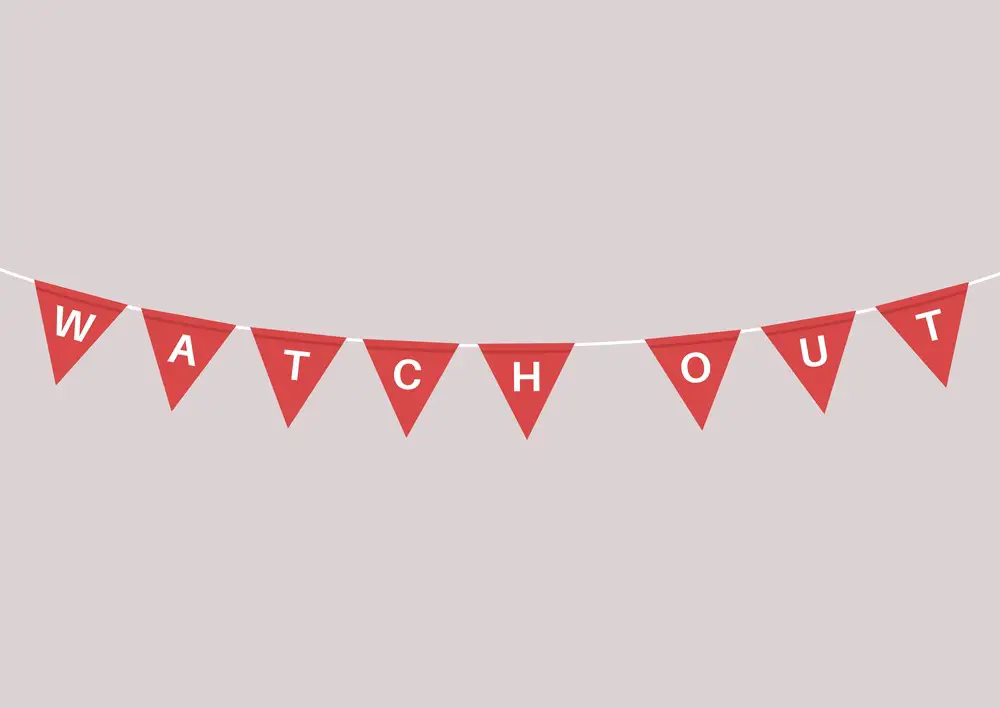We sought insights from a diverse group of professionals to delve into the complex reasons why some individuals persist in jobs they dislike. From the “Comfort Zone Dilemma” to a fear of uncertainty, here are the top six reasons these experts believe people continue in jobs they hate.
- The Comfort Zone Dilemma
- The Golden Handcuffs Phenomenon
- Fear of Change
- Necessity and Lack of Alternatives
- The Sunk Cost Fallacy
- Fear of Uncertainty
 The Comfort Zone Dilemma
The Comfort Zone Dilemma
 From my experience in mental health and as a life coach, one primary reason is the “Comfort Zone Dilemma.” It’s not just about the paycheck or the fear of the unknown. It’s about the emotional safety net that routinely provides.
From my experience in mental health and as a life coach, one primary reason is the “Comfort Zone Dilemma.” It’s not just about the paycheck or the fear of the unknown. It’s about the emotional safety net that routinely provides.
I once coached someone who admitted they felt completely stuck in their job. They knew every twist and turn, every challenge, and even if they didn’t like it, it was familiar. Breaking free required not just changing jobs but a complete emotional and mental shift.
So, if you find yourself in a job you’re not fond of, ask yourself: “Am I here because it’s truly beneficial, or am I just treading a familiar path?” Sometimes, realizing that and being more self-aware can be the first step to seeking change.
Bayu Prihandito, Psychology Expert, Life Coach, Founder, Life Architekture
 The Golden Handcuffs Phenomenon
The Golden Handcuffs Phenomenon
The “Golden Handcuffs” phenomenon often keeps individuals trapped in the web of demanding and stressful jobs. As a career coach, I assist clients grappling with staying in stress-inducing roles because of enticing financial incentives. These perks—sizeable salaries, bonuses, stock options, and healthcare benefits—create an illusion of stability despite job strain. Despite the toll exacted by a high-stress job, these material rewards keep people in place.
Consider those who’ve invested heavily in high-paying roles. The prospect of relinquishing income and perks amid stress creates an internal struggle—escaping distress versus maintaining stability.
Overcoming the “Golden Handcuffs” involves assessing priorities and long-term goals. Collaboratively, my clients and I conduct cost-benefit analyses to reveal the outcomes of retaining these roles. While change may bring initial financial setbacks, the promise of less stress and enhanced well-being guides them to a more rewarding career path.
Dr. Sophia Carter, Principal Leadership and Career Coach, Kewanee Coaching
 Fear of Change
Fear of Change
Many people have a fear of change. Yes, change can be scary and uncertain, especially with something as important as our careers.
Sometimes, people stay in jobs they hate because they fear leaping into the unknown. They may worry about financial instability, starting over from scratch, or not being able to find another job that pays as well.
But here’s the thing—staying stuck in a job you hate can seriously affect your mental and physical health. It can lead to burnout, stress, and overall dissatisfaction with life.
Johannes Larsson, Founder and CEO, JohannesLarsson.com
 Necessity and Lack of Alternatives
Necessity and Lack of Alternatives
Necessity and a lack of alternatives can keep people planted for quite a long time. The same kind of person who is unlikely to be optimistic about alternative prospects is the same kind of person who would worry about financial catastrophe. I have seen it in myself and others, and it’s a bad place to be in.
Trevor Ewen, COO, QBench
 The Sunk Cost Fallacy
The Sunk Cost Fallacy
People continue working despite unhappiness because they believe they have spent time and effort building this career and don’t want to start over. This investment creates a psychological phenomenon known as the “sunk cost fallacy,” where people feel compelled to stay in their role to rationalize the resources they’ve already committed. So, they continue their work, even though they hate their jobs.
James McNally, Managing Director, SDVH [Self Drive Vehicle Hire]
 Fear of Uncertainty
Fear of Uncertainty
One primary reason many individuals remain in jobs they dislike is the fear of uncertainty. Venturing into a new job or career path brings a set of unknowns—from adapting to a new work environment to the potential risk of financial instability during the transition. This fear can paralyze them, making the known discomfort of their current job seem more bearable than the unpredictable challenges of a new one.
Over time, this can lead to complacency, where the individual prioritizes the security and predictability of their current position over pursuing job satisfaction and personal fulfillment.
Khurram Mir, Founder and Chief Marketing Officer, Kualitatem Inc.
Unpacking the Complexity of Staying in Unloved Jobs
The dance between human behavior and work dynamics never ceases to fascinate me. We have rounded up an impressive lineup of experts, each throwing their unique light onto why some people continue to clock into jobs they’d rather clock out of for good. So, shall we dive deeper into this captivating conundrum?
The Comfort Zone Dilemma
Bayu Prihandito’s point about emotional safety nets resonates. We all have our comfort zones, those cozy spaces where everything is familiar, even if it’s not all rainbows and unicorns. When stepping out of that comfort zone, the daunting part involves altering the fabric of who you are or think you are. It’s not just about submitting a resume somewhere else; it’s about confronting those internal dialogues that scream, “Better the devil you know than the devil you don’t!”
The Golden Handcuffs Phenomenon
Dr. Sophia Carter brings up something we’ve all probably daydreamed about the allure of a cushy salary and decadent perks. It’s almost like those golden handcuffs are studded with tiny diamonds that make you forget they’re still handcuffs. People, at times, become modern-day Sisyphuses, forever pushing a boulder uphill for the promise of material gain. And it’s astonishing how quickly “temporary” stress becomes accepted in daily life when the paychecks are big enough.
Fear of Change
Johannes Larsson’s insight is a universal truth. Fear of change is like that mysterious dark room you were scared of as a child. You don’t know what’s in there, and you’re not sure you want to find out. The job might be terrible, but it’s your terrible, you know? The familiarity breeds a false sense of control that, ironically, keeps you from taking control of your happiness.
Necessity and Lack of Alternatives
Trevor Ewen highlights the gritty, sometimes harsh, reality that not everyone has the luxury of choice. When the sword of Damocles is hanging over you in the form of rent, bills, or responsibilities, then that terrible job might look like your only shield. Some people are stuck in survival mode, not because they want to be, but because they feel they must be.
The Sunk Cost Fallacy
James McNally introduces a cognitive quirk that most of us fall prey to at one point or another. The idea of “I’ve come this far; I can’t turn back now!” can be as misleading as a mirage in a desert. You thirst for fulfillment but keep walking deeper into dissatisfaction because you’re convinced you’ve invested too much to change direction.
Fear of Uncertainty
Khurram Mir captures this beautifully. Fear of uncertainty is like a relentless whisper saying, “Don’t try something new; you might fail.” It’s funny how this fear turns our imagination against us. Instead of envisioning new, exciting opportunities, we imagine all the myriad ways things could go wrong. The irony is that life is never certain, but we cling to a miserable certainty because it’s less scary than an unknown that might be wonderful.
So, what’s the takeaway from all these insights? Perhaps the first step in breaking free from a job you hate is acknowledging why you’re sticking with it. Self-awareness is the key that unlocks all other doors. Once you understand your motivations—whether fear, comfort, or necessity—you can begin plotting a course toward a job you don’t just tolerate but love; after all, the only thing worse than navigating through change is realizing you’ve spent your life avoiding it.
 Charting Your Course: Setting Goals and Measuring Progress When Trapped in a Job You Dislike
Charting Your Course: Setting Goals and Measuring Progress When Trapped in a Job You Dislike
Ah, goals and progress—the two watchwords for any transformation. Setting goals can be your lifeline when you’re lodged in a job that feels like quicksand. It’s more than just a hopeful escape route; it’s your blueprint for building a happier life. And let’s not forget progress, the ever-important evidence that things are upswing. Here’s how to align the stars:
Identify Your Core Goals
The first step? Know what you’re aiming for. Is it a job in a new field? A more balanced work-life equation? Perhaps it’s simply finding ways to make your current job more tolerable. Get specific. Goals like “I want to be happy” are wonderful but too nebulous. Try something like, “I want to transition into a role where I can use my creative skills and work remotely at least twice a week.”
Break it Down
Big goals are just little goals stacked together. Break your core goal into achievable milestones. If you aim to switch careers, for example, smaller goals could include taking an online course, networking with people in the industry, or updating your resume and LinkedIn profile.
 Implement SMART Goals
Implement SMART Goals
Make your goals Specific, Measurable, Achievable, Relevant, and Time-bound. Instead of vaguely deciding to network, plan to attend one industry-specific webinar monthly and connect with at least two people after each event.
Set up Regular Check-ins
What’s progress without a bit of self-assessment? Monthly or even bi-weekly check-ins can keep you honest and give you the kick when motivation dwindles. Reflect on your small wins, adapt your plans as needed, and celebrate the victories that keep your momentum going.
Engage a Support Network
Whether it’s a friend who’s great at pep talks, a mentor in the field you’re eyeing, or a career coach, don’t underestimate the power of a cheerleading squad. They can remind you of the bigger picture when the going gets tough.
Embrace Flexibility
Life is unpredictable. You may hit snags in your plan or discover that what you thought you wanted isn’t your cup of tea. And that’s perfectly okay. Goals aren’t set in stone; they’re stepping stones. Don’t be afraid to recalibrate.
Measure, But Don’t Obsess
Progress can be intoxicating, but it’s easy to become fixated on ticking boxes and lose sight of the overall mission: your well-being. Take a step back if a goal or task feels more oppressive than empowering. Reflect. Is this moving you closer to a job you could love or at least tolerate better? If not, it’s time for some course correction.
Setting goals and tracking your progress can light the way through the murk of a job you dislike. By being intentional, accountable, and willing to adapt, you turn an unpleasant job situation into an active proving ground for your future. Because you’re not just clocking in and out of a job; you’re navigating your life’s journey.
 Recognizing the Red Flags: When the Job You Hate Calls for Professional Help
Recognizing the Red Flags: When the Job You Hate Calls for Professional Help
If you’re in a job that makes your stomach churn at the thought of Monday mornings, there’s a good chance you’re dealing with more than just a case of “the blues.” Stress isn’t just a minor inconvenience; it’s a full-blown health hazard that can affect both body and mind. When do you know it’s time to seek professional help, such as therapy? Here are some signs:
- Overwhelming Anxiety: If your job is constantly on your mind, causing you restless nights and anxious days, it may be time to speak to a mental health professional.
- Physical Symptoms: Experiencing headaches, stomach issues, or other physical ailments without medical explanation? Your body might be sounding the alarm.
- Emotional Exhaustion: If you’re feeling completely drained emotionally—crying more easily, snapping at loved ones, or feeling detached—it’s a strong indication that you’re emotionally burnt out.
- Lack of Motivation: Consider it a red flag when even small tasks feel like monumental challenges, and you can’t muster the energy to care about your work (or anything else).
- Social Withdrawal: Pulling away from friends and family or losing interest in activities that once brought you joy can directly result from job-induced stress.
- Increased Irritability: If your fuse is shorter than ever, and you find yourself angered or frustrated by small things, it might not just be a bad mood but a sign of chronic stress.
- Feeling Hopeless: When you can’t see a way out, and everything seems bleak, it’s a critical sign that you should seek help immediately.
- Escapist Behaviors: Turning to alcohol, drugs, or other forms of escapism to cope with your job’s emotional toll is a glaring sign that you need professional intervention.
- Intrusive Negative Thoughts: If your mind is a constant loop of negativity, especially concerning your self-worth or capabilities, it’s time to seek external help.
- Dread and Avoidance: If you find yourself calling in sick to avoid your workplace or procrastinating tasks because you dread doing them, these are signs you need help navigating your emotional landscape.
If you resonate with several of these signs, don’t hesitate to seek professional help. Therapy can provide coping mechanisms and potentially guide you toward a change—a new job or a newfound ability to manage stress in your current one. After all, life’s too short to spend it in a job that requires you to sacrifice your well-being.
Jacob Maslow: Striding Through Life’s Complex Labyrinths
Hey, I’m Jacob Maslow. I’ve learned to navigate my way through some pretty thick mental fog, thanks to therapy and Lexapro. Dealing with a narcissistic ex who plays by her own rules, especially regarding our kids and court orders, has been eye-opening. I turned those lemons into lemonade—or, more precisely, into articles and legal resources for others caught in similar storms.
You’ll find me taking long, reflective walks to clear my head and then using that newfound clarity to write about everything from mental health to the nitty-gritty of family court chaos. My aim? To shine a light for those finding their way through life’s intricate mazes. If I can emerge stronger, so can you.
- The Burnout Epidemic: Why We’re All Feeling Overwhelmed and How to Cope - February 9, 2024
- How to Live a Peaceful Life - February 9, 2024
- Useful Information You Should Know About Health Screenings - February 8, 2024
This site contains affiliate links to products. We will receive a commission for purchases made through these links.


 The Comfort Zone Dilemma
The Comfort Zone Dilemma The Golden Handcuffs Phenomenon
The Golden Handcuffs Phenomenon Fear of Change
Fear of Change Necessity and Lack of Alternatives
Necessity and Lack of Alternatives The Sunk Cost Fallacy
The Sunk Cost Fallacy Fear of Uncertainty
Fear of Uncertainty Charting Your Course: Setting Goals and Measuring Progress When Trapped in a Job You Dislike
Charting Your Course: Setting Goals and Measuring Progress When Trapped in a Job You Dislike Implement SMART Goals
Implement SMART Goals Recognizing the Red Flags: When the Job You Hate Calls for Professional Help
Recognizing the Red Flags: When the Job You Hate Calls for Professional Help
